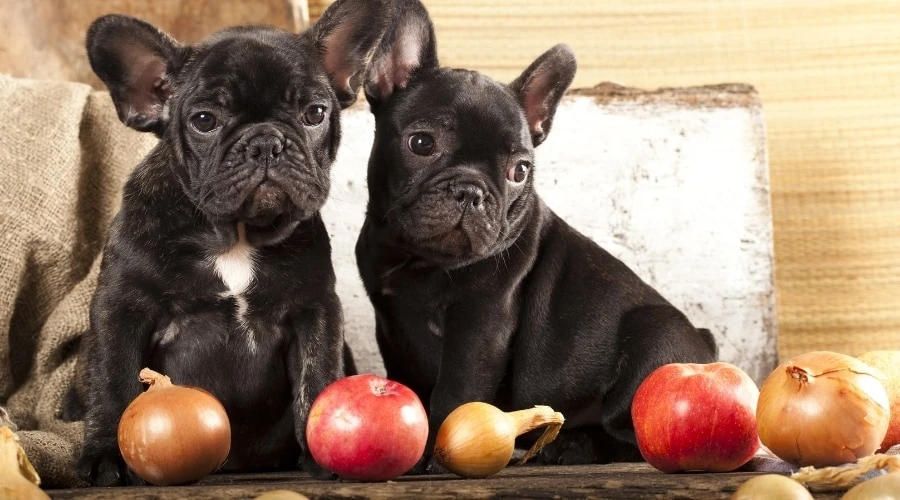Are Dogs Allergic to Onions? Unveiling the Onion Dilemma

Onions are a common ingredient found in various dishes, but when it comes to our furry companions, concerns about their safety arise. In this blog post, we'll explore the question: Are dogs allergic to onions? We'll delve into the potential risks associated with onions and shed light on the precautions dog owners should take.
Understanding the Risks:
While not typically considered an allergic reaction, onions can be harmful to dogs due to their content of a substance called N-propyl disulfide. This compound can damage a dog's red blood cells and lead to a condition known as hemolytic anemia. The effects may vary depending on the size of the dog, the amount of onion ingested, and the overall health of the individual dog.
While not typically considered an allergic reaction, onions can be harmful to dogs due to their content of a substance called N-propyl disulfide. This compound can damage a dog's red blood cells and lead to a condition known as hemolytic anemia. The effects may vary depending on the size of the dog, the amount of onion ingested, and the overall health of the individual dog.
Symptoms of Onion Toxicity:
If a dog consumes onions, they may experience symptoms such as weakness, lethargy, pale gums, rapid breathing, vomiting, diarrhea, and in severe cases, collapse or even organ failure. It's important to note that the symptoms might not be immediate and can take several days to manifest.
If a dog consumes onions, they may experience symptoms such as weakness, lethargy, pale gums, rapid breathing, vomiting, diarrhea, and in severe cases, collapse or even organ failure. It's important to note that the symptoms might not be immediate and can take several days to manifest.
Precautions to Take:
As responsible dog owners, it is crucial to prevent dogs from ingesting onions and any dishes containing them. Be cautious when sharing meals or leftovers, ensuring that onions are completely excluded from your dog's diet. Keep onion-containing products, such as onion powder or soup mixes, safely stored away from your canine companion's reach.
As responsible dog owners, it is crucial to prevent dogs from ingesting onions and any dishes containing them. Be cautious when sharing meals or leftovers, ensuring that onions are completely excluded from your dog's diet. Keep onion-containing products, such as onion powder or soup mixes, safely stored away from your canine companion's reach.
Alternative Foods:
If you're looking for safe and healthy treats for your dog, there are numerous options available. Fresh fruits like apples, blueberries, or watermelon can make great alternatives, providing essential nutrients without the risks associated with onions. Always consult with your veterinarian to determine the best diet for your dog's specific needs.
If you're looking for safe and healthy treats for your dog, there are numerous options available. Fresh fruits like apples, blueberries, or watermelon can make great alternatives, providing essential nutrients without the risks associated with onions. Always consult with your veterinarian to determine the best diet for your dog's specific needs.
Immediate Actions:
If you suspect your dog has ingested onions, contact your veterinarian immediately. Provide them with information about the quantity and type of onion consumed. The veterinarian may recommend inducing vomiting or administering appropriate treatments based on the severity of the situation.
If you suspect your dog has ingested onions, contact your veterinarian immediately. Provide them with information about the quantity and type of onion consumed. The veterinarian may recommend inducing vomiting or administering appropriate treatments based on the severity of the situation.
While dogs may not exhibit allergies to onions in the traditional sense, the risks associated with their consumption should not be underestimated. Onions contain compounds that can lead to severe health issues for our canine companions. Prevention is crucial, and it is our responsibility as dog owners to ensure that onions are kept out of their reach. By understanding the risks and taking necessary precautions, we can safeguard our furry friends' well-being and provide them with a safe and healthy diet.